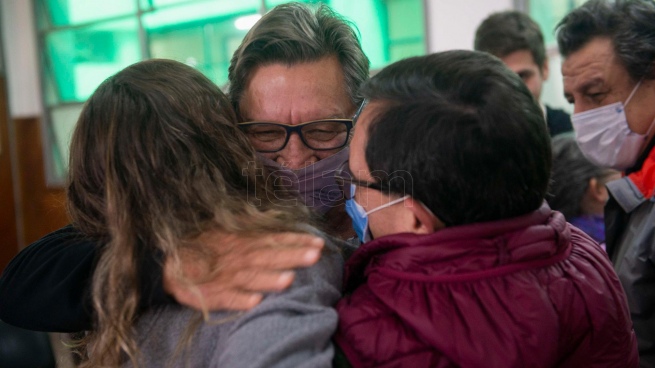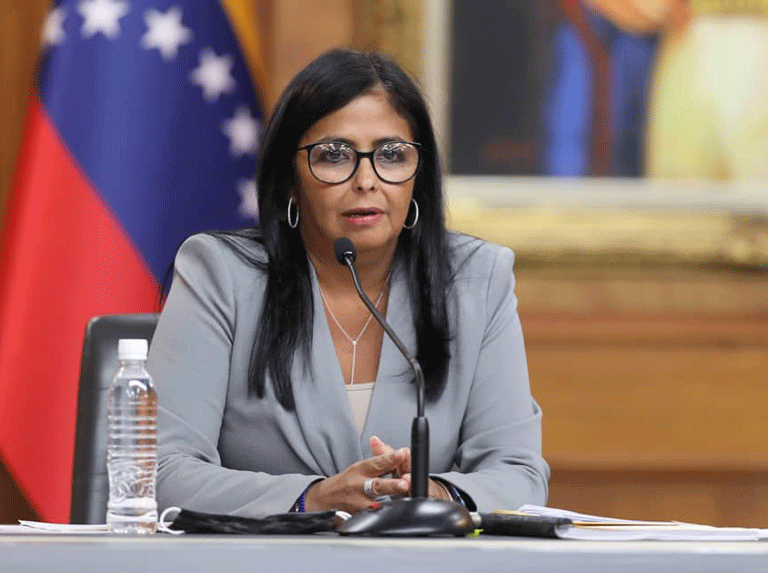The Oral Federal Criminal Court of Resistance sentenced this Friday nine repressors, with sentences of up to 18 years in prison, for crimes against humanity committed during the civil-military dictatorship between 1974 and 1979 to the detriment of five victims who were kidnapped in the Resistance Investigations Brigade and in the Police Mayor’s Office of that city, after which the lawyer for the lawsuit, Duilio Ramírez, highlighted the “sensation of having found justice” with that ruling.
Judges Noemí Marta Berros, Liliana Graciela Carnero and Roberto López Arango Manader unanimously sentenced nine of the ten defendants for the crimes of aggravated illegitimate deprivation of liberty and application of aggravated torture. and whose penalties vary according to the degree of proven responsibility.
The cause is known as “Conscripts” because two of the victims, Ramón Luque and Ricardo Uferer, were completing their Compulsory Military Service when they were kidnapped by members of the Army. In addition, the magistrates ruled for the crimes committed against Santiago Almada, Saturnino Ferreira and Norma Beatriz Medawar.
In this case, Chaco Police Corporal José Marín was sentenced to nine years in prison, while Army officer Ernesto Jorge Simoni and Police Mayor Miguel Ángel Vittorello must serve a ten-year sentence.
In addition, the head of the Investigation Brigade, José Francisco Rodríguez Valiente, and Army officers Ricardo Guillermo Reyes and Luis Alberto Patetta were sentenced to 12 years in prison.
Police sergeant Gabino Manader and Army officer Aldo Héctor Martínez Segón were sentenced to 14 years in prison.
Meanwhile, the police officer Carlos Domingo Mora was sentenced to the highest penalty, 18 years in prison for the crimes committed against Norma Medawar, Santiago Almada and Saturnino Ferreyra, while former commissioner Juan de la Cruz López was acquitted.
Moments before knowing the verdict, the defendants were able to express their final words, some from home, others from the Penitentiary Unit where they are already serving sentences for other causes and only Simoni and Vittorello in person from the court. Manader, Marín, de la Cruz, Vitorrello and Reyes asked to speak to once again insist on their innocence.
After issuing the sentenceJudge Berros based and extended for an hour and a half on what were the criteria used to reach the Court’s decision in this oral and public process that began on April 20, in which 25 witnesses testified.
“In this case, the witnesses are necessary and fundamental because without them it is impossible to reconstruct the historical context”expressed the magistrate and pointed out that “the testimony is an easy proof to receive, but very delicate to appreciate. Its analysis must be faced with awareness of its complexity, but knowing that it is an indispensable evidentiary resource to be able to reconstruct the facts as happened.”
The judge stressed that there “an objective and reviewable truth” and that is that during the last military dictatorship “there was a systematic and general plan for the extermination of the Argentine civilian population.”
“Fortunately, this case is not judged by the disappeared, but by five victims who survived all the unimaginable pain they had to endure during their time in captivity.”remarked
Regarding the acquittal of De la Cruz López, the magistrate maintained that the evidence was “absolutely insufficient” to award co-authorship in the acts imputed to him, even acknowledging that “many will dislike” this decision.
“I have no doubts. What I am certain of is that I have no evidence to convict him and there is no double standard. This makes these trials constitutionally legitimate. We do not come here to condemn, but to judge,” he explained.
And he closed his exposition by pondering the historical value of naming things by their name to “produce truth” when speaking of “a genocide” about what happened in Argentina during state terrorism between 1974 and 1983.
“This exercise of criminal justice administration regarding all these crimes against humanity committed during the dictatorship would have been absolutely and impossible to carry out without the collective reconstruction of memory,” he said and affirmed that “we judges limit ourselves to listening and analyzing criticism and rationally the testimonies and record what is said with the remaining probative material and translate only the verified truth into the sentence”.
For his part, the lawyer for the Chaco lawsuit highlighted in statements to Télam that “both the public and the victims left with the feeling of having found justice and of understanding what happened and that is really important” and said that “they experienced a feeling of satisfaction regarding the ruling and at the end there was an almost unanimous applause”.
“We expected ten convictions, we obtained nine and an acquittal was issued; we are going to wait for the reading to define if we are going to appeal in that case”expressed Ramírez and said that “among those convicted, there were two who were facing a trial against humanity for the first time and they had no record. One of them, Mora, received an 18-year sentence, which is a large amount.”
On the other hand, he criticized the attitude of the accused who “once again demonstrated a lack of repentance” because they again “wasted the opportunity to help find the remaining missing persons.”
“Almost five decades have passed and we must close the wounds that are still open, help relatives bury their dead. It is another lost opportunity”lamented the lawyer.
Likewise, he highlighted as “important and novel” that the foundations of the ruling were read on the same day, since it allows “understanding what was the path followed by the court to arrive at a sentence” and said that he hopes that other courts do the same. same.















